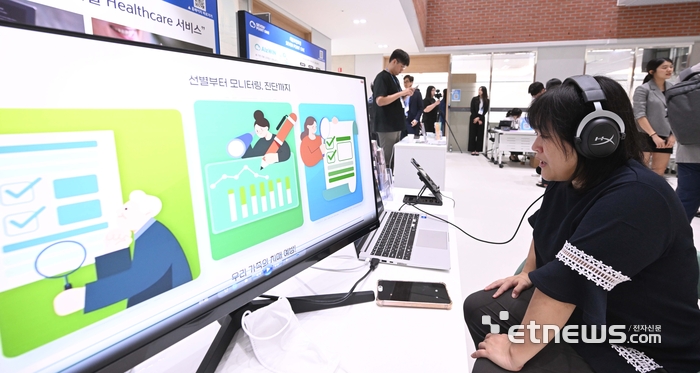Seoul BioHub Selects 12 Promising Startups to Advance the Future of Biohealth Innovation
etnews
December 16, 2024

Seoul Bio Hub has selected 12 startup companies, aspiring to be key players in the future biohealth industry, to join its resident program, supporting their global leap. With the aim of creating an innovative ecosystem, the hub is accelerating its role as a platform that connects capital and know-how with future technologies. On the 16th, Seoul Bio Hub announced that it had finalized the selection of resident companies for the "Hongneung Bio-Medical R&D Anchor Facility" and would be providing support through programs such as technology commercialization. Among the selected companies, the global center residents include Maru Therapeutics, BioMe, BaxDime, OzzonBio, Elecsel, Connext, ChlosoScience, and Twin Pig Bio Lab—making up eight in total. In addition, four companies—Nexgel Biotech, Micro Mediome, ABIS, and ItFit—from the Industrial Support Zone, Regional Open Zone, and BT-IT Convergence Center were also chosen. This brings the total to 12 companies, marking 22 resident companies selected this year alone after 10 were chosen in July, including Nanovick and Da Vinci Health. Many of the newly resident companies are engaged in emerging fields that have energized the biohealth industry. In the artificial intelligence (AI) sector, notable examples include ABIS, which offers a pathology tissue solution for cancer diagnosis and personalized treatment support, and ItFit, which provides a motion analysis system based on musculoskeletal medical data. Other representative fields include the microbiome (Micro Mediome and BioMe) and immune cell therapies (Twin Pig Bio Lab and Maru Therapeutics). These resident companies have access not only to wet lab research spaces but also to shared research facilities and more than 250 research instruments. Above all, the greatest benefit lies in Seoul Bio Hub’s support in attracting investments, expanding overseas, and connecting with major domestic pharmaceutical companies or global biohealth enterprises. Leveraging Seoul city’s investments and KIST’s operational know-how, Seoul Bio Hub is expanding its support with an ambition to emulate the “Boston Bio Cluster.” With a rich network of technologies and capital along with a track record of success, competition for residency is becoming increasingly fierce. In fact, the competition ratio for this selection was 4.25 to 1, a significant increase compared to 1.4 to 1 last May. A notable example that attests to the competitiveness of Seoul Bio Hub’s support programs is the case of Curebus, a former resident company, which last month transferred its dementia drug candidate technology to global pharmaceutical giant Allergan Pharma for a total of $370 million (approximately 506 billion KRW). In the new year, Seoul Bio Hub plans to transform into a “biohealth platform” focused on fostering an innovative ecosystem by linking with large domestic and international biohealth companies and passing on know-how to graduate companies—the goal being to create a “second Curebus.” This year, Seoul Bio Hub collaborated with companies such as Celltrion, Daewon Pharmaceutical, and Medytox to conduct an open innovation program aimed at discovering promising startups. The model has proven to be a win-win situation, enabling established companies to secure necessary future technologies while providing startups with the resources needed for growth. It has also served as a gateway to global markets by hosting startup challenges with multinational companies like Roche Diagnostics Korea and Korea BMS Pharmaceutical. In the new year, open innovation programs will be further expanded in collaboration not only with domestic companies such as Celltrion and Daewon Pharmaceutical but also with global enterprises like Roche Diagnostics Korea. It is especially encouraging that the global recognition of biohealth technologies utilizing IT, such as AI, has boosted demand for partnerships with global companies. On the 17th, Seoul Bio Hub is set to hold a “Resident Startup Demo Day” to offer resident and graduate companies opportunities for investment attraction and know-how transfer. Kim Hyun-woo, Center Director of Seoul Bio Hub, stated, “The success of Lekraja was made possible because the startup Genosco’s technology flowed to Yuhan Corporation. Our goal for the new year is to enhance open innovation between startups and domestic mid-sized pharmaceutical companies to strengthen the possibility of global expansion.”